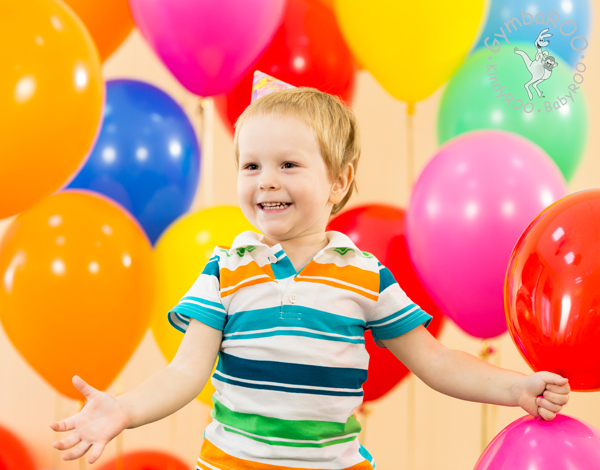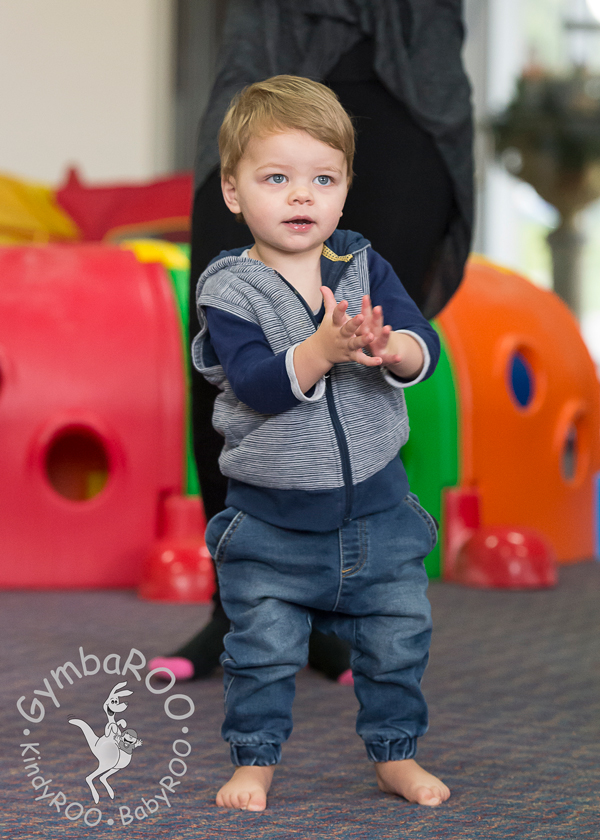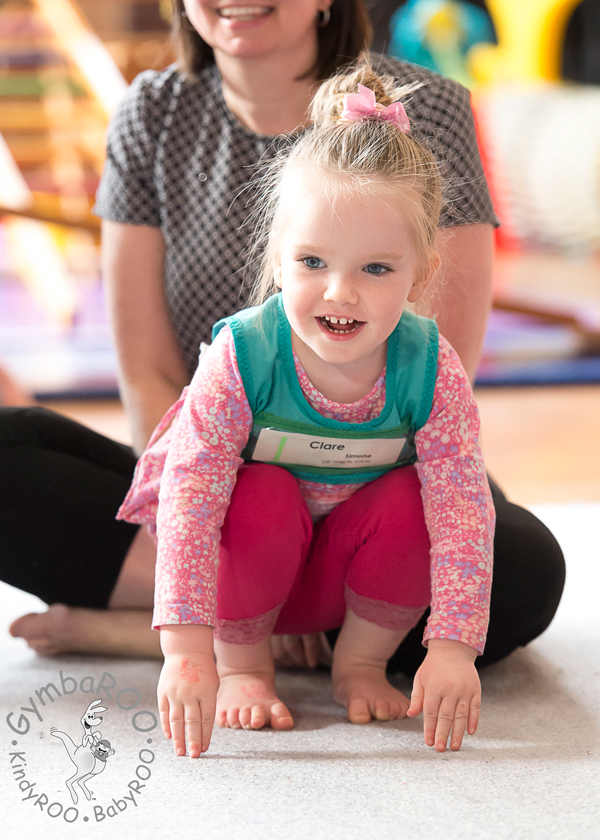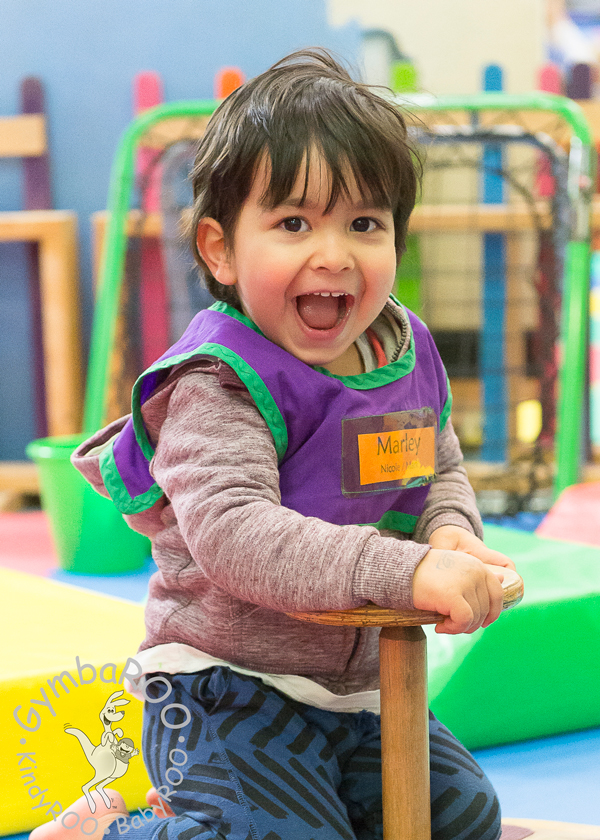Join the thousands of parents already raising smarter, happier babies with our online baby classes: The Active Babies Smart Kids series. Click here.
GymbaROO-KindyROO kids are excelling academically, emotionally, in leadership roles and on the sporting field. Find us at: GymbaROO-KindyROO
Dr Jane Williams and Bindy Cummings
Neurological age versus chronological age. What’s the difference?
During my travels I meet many parents of young children and I am often asked the question: “At what age should my child start school?” To answer this question it’s important to understand the difference between chronological age and neurological age. While a child may be at the recommended chronological ‘age’ to start school, their ability to function well in the classroom is reliant on their neurological ‘stage’ of development.
Chronological age is easy to understand. It’s your child’s actual age – the number of years, months and days since birth. Neurological age is a little more complex, as it refers to the ‘stage’ or level of maturity of the brain and the body. We can measure a child’s neurological stage by assessing visible skills such as physical capabilities, speech and language skills, emotional responses and social capacity.
Not all children develop at the same rate, so chronological age does not always match the neurological stage at which a child is functioning. The rate of neurological development is closely associated with the kinds of experiences that a child has in the first years of life, while chronological age just keeps increasing, regardless!
Neurological development may be hampered by birth trauma, high levels of stress, or illness that affects brain development or it may be enhanced by exposure to stimulation that drives rapid neural ‘wiring and firing’. For example, a child who experiences lots of love, movement, communication and the chance to explore the world to gain real life trial and error learning experiences, will mature neurologically more quickly than a child who misses out on those experiences. It’s also possible that some children take a little longer to move from one stage to another for no obvious reason at all. So, it’s not unusual to see many variations in developmental ‘stages’ between children who are all the same ‘age’.
What’s the best way to determine neurological age?
At GymbaROO-KindyROO we know that movement skills reflect the stages of brain development very easily and accurately. Of course, some children will have more well developed movement skills than others, but many children who have a mismatched neurological stage and chronological age often also have movement challenges of one sort or another as well.
If you are concerned that your child’s neurological stage is not matching your child’s chronological age, there are a number of assessments available through your local Child Health Nurse or doctor.
What are the neurological stages appropriate for each chronological age?
While every child develops neurologically at their own rate, the developmental guidelines provided by your local health professional gives a good ‘rule of thumb’. GymbaROO-KindyROO’s Neurological/Gross Motor Developmental triangle also provides a guide.
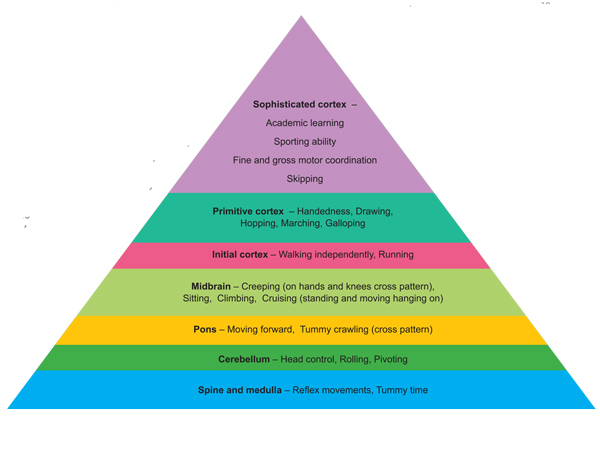 It is important to remember that it’s not when your child goes through a particular neurological stage, but that they do. So, if your child is three years of age and not managing some of the expected neurological skills, such as the motor skills of jumping, hopping and galloping, don’t panic! Just provide him or her with the opportunity to practice, not only these skills, but also the earlier ones as these lay the important neurological pathways that provide the foundations for the harder skills. Once your child gets these basic neurological stages firmly embedded in the brain wiring, he can start to achieve success with the expected tasks.
It is important to remember that it’s not when your child goes through a particular neurological stage, but that they do. So, if your child is three years of age and not managing some of the expected neurological skills, such as the motor skills of jumping, hopping and galloping, don’t panic! Just provide him or her with the opportunity to practice, not only these skills, but also the earlier ones as these lay the important neurological pathways that provide the foundations for the harder skills. Once your child gets these basic neurological stages firmly embedded in the brain wiring, he can start to achieve success with the expected tasks.
While age marches progressively upwards, neurological development is dramatically affected by the experiences your child has. It’s not just a matter of ‘good luck’, or ‘wait and see’, or even, ‘he’ll get there eventually’. Children need to be actively provided with the kinds of experiences that promote neurological growth.
At GymbaROO we provide your children with exactly the right activities for their age and stage of development, making sure that each child develops to their full potential and that neurological age marches alongside chronological age. By building the neurological system step-by-step from foundational skills to complex skills, we ensure that children are ready academically, emotionally, physically and socially for the challenges of the school classroom.
Dr Jane Williams (PhD, BMgt, RN(Paeds)) is the Research and Education General Manager for GymbaROO and KindyROO. She is one of Australia’s leading experts on baby and child development.
Bindy Cummings (B.Ed(Human Movement) Hons) has worked as a teacher, child development consultant, early childhood development lecturer, teacher trainer and INPP & iLS consultant. She is the co-creator of GymbaROO’s Active Babies Smart Kids online series, has authored many published articles on child development. She is working on the content and development GymbaROO’s portal and online training programs, and the creation of new online programs for parents and children. More on Bindy Cummings here.
GymbaROO-KindyROO
Thousands of parents, babies and children are presently involved in our programs and creating rising stars. GymbaROO-KindyROO kids are excelling academically, emotionally, in leadership roles and on the sporting field. Come join all the fun and learning! “GymbaROO – The best decision I ever made for my child.” Classes from 6 weeks old – 7 years GymbaROO KindyROO
Active Babies Smart Kids – Online Baby Classes
GymbaROO-KindyROO’s online series of baby classes is taking the parenting world by storm! It is highly recommended by doctors, paediatricians, early childhood experts and the Maternal Child and Family Health Nurses Association. This series is being called: “The essential guide for parents”. Join the thousands of parents already playing with their babies from birth, in the best way for brain and body development and laying crucial foundations for future learning. What happens in the first year, not only matters, it matters a lot!
Active Babies Smart Kids online series – Click here.
Try the first class FREE! Click here to watch our Active Babies Smart Kids Episode 1 – Tummy Time
Enjoy the following GymbaROO-KindyROO articles
GymbaROO-KindyROO: Who, what, where, why and how
All about GymbaROO-KindyROO’s online baby classes for parents and babies: Active Babies Smart Kids
Choosing childcare that fosters neuro-development, quality play and rich learning environments.
School Readiness: Is my child ready for school? A checklist
What babies really want: Developmentally brilliant gifts for babies.
Kids learning ability jumps 2 years with 25 minute GymbaROO movement program 3x a week.
NAPLAN results improve with LESS reading and maths and MORE GymbaROO.
To my elected childcare, preschool or school: Please include a GymbaROO sensorimotor program.
Click here for more GymbaROO-KindyROO article choices

